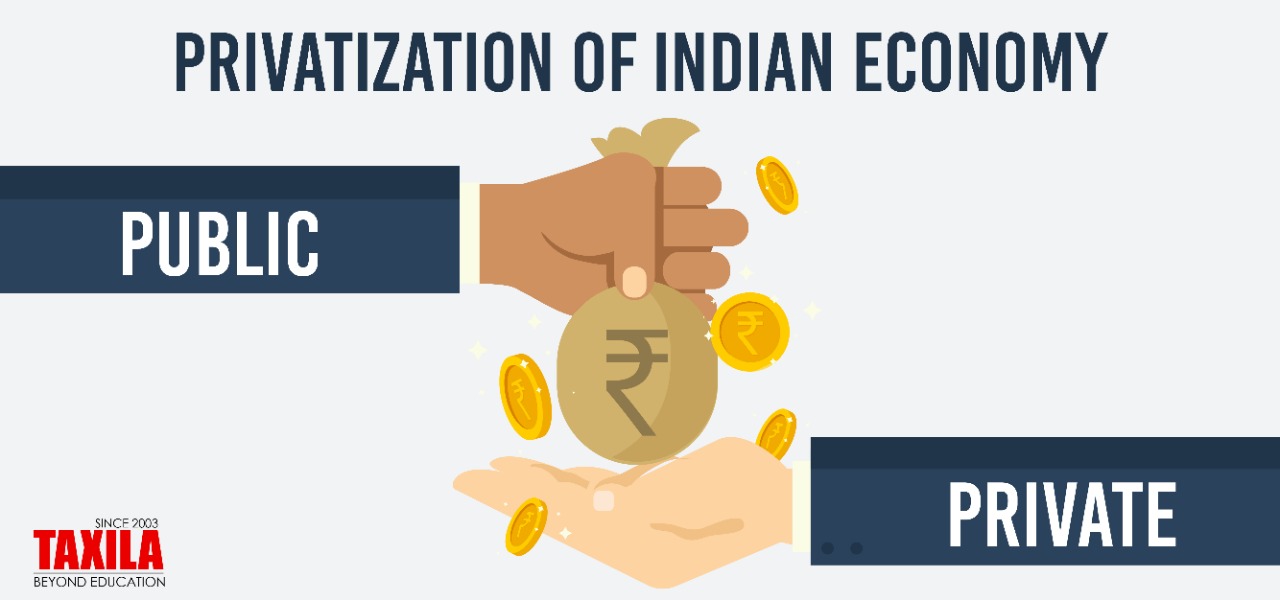Pros of Privatization of Indian Economy
- Economically, privatization at the micro-level tends to increase efficiency, quality, range of choices, innovation, reduces cost & prices, and ultimately raises the profits of the firm. These can be further downloaded into, high incentives, lesser political interference, healthy competition, and reinvestment.
- At macro-levels, privatization helps generate cash from asset sales which can increase capitalization. It improves government fiscal health, generates more wealth leading to overall economic growth. Wasteful spending, borrowings are checked, resulting in attracting foreign investments, and new revenues that arise from new corporate and income taxes.
- At a social level, privatization reduces corruption in the public sector and red-tapism.
- The organizations in the private sector are more sensitive to consumer tastes and hence have enhanced customer services.
- Since there is ownership of shares, it empowers citizens’ participation in the management of the economy.
- Citizens experience greater personal freedom, because of a reduction in state involvement.
Cons of Privatisation
- The critiques have an argument that privatization may create local monopolies. Monopolies if created in utilities, will exploit their market power to the detriment of consumers’ welfare. They can reduce output and increase prices for profits.
- There are some examples from developing countries where, divested assets were acquired by foreigners, who diverted the majority of their profits outside the country. So, there may be scenarios where there are no real benefits to the economy.
- Some experts also believe that privatization induces social inequality. Wealth may get concentrated in the hands of a few, generating unemployment and massive retrenchments. This might worsen the plight of the poor.
- Detractors also cite privatization as political opportunism, which can further be used for clientele politics. So there can be transformation but no elimination of corruption.
Read More : The Art of Management
Conclusion
Privatization can be the means to one thing but may trigger multiple other impacts. There is no guarantee that privatization in India will reduce corruption and operate successfully in favor of Indian citizens. Corruption is not correlated to being a private or public sector, it is about the individual’s attitude. But by privatization, we can reduce corruption up to some extent. Privatization of the Indian economy will impact us in both ways positively and negatively we need to find a way to implement it in the best way.
It has both quantifiable and non-quantifiable long-term consequences. Privatization may be successful or can fail as well depending on many attributable factors. Talking about India there is so much political interference on the economy and its policy. Privatization steers the companies in the right direction increasing good competition in the market. If driven right, privatization pushes efficiency and performance.


